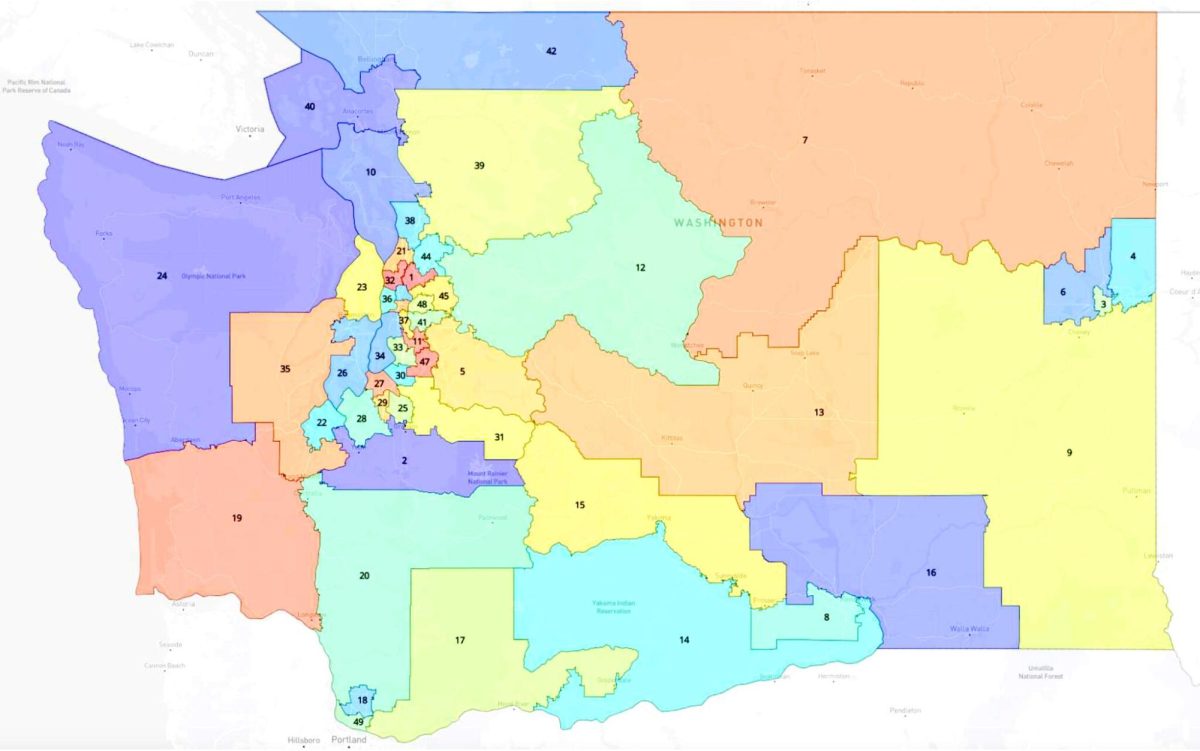On Tuesday after a federal judge found a Washington voting map for the Washington State Legislature to be discriminatory to hispanics, the Republican attempt of revival was rejected. Two voters and a republican lawmaker requested that the justices move forward with a voting map that was said to permit racial discrim among hispanics and violate the Voting Rights Act.
This decision solidifies Judge Robert Lasnik’s controversial March 15th ruling. In his thirty two page decision, the state of Washington is adjured to reconvene the Redistricting Commission and draw up new boundaries. Beginning two years ago, when voting rights groups filed a lawsuit, claiming after the 2020 election redrawn maps intentionally split Latino voters into various districts in the Yakima Valley. Despite initial pushback from the Washington state, new maps were ordered to be redrawn when the groups claims were proved valid under Section 2 of the Voting Rights Act. This “prohibits voting practices or procedures that discriminate on the basis of race, color, or membership in one of the language minority groups.”
As the Washington legislature rejected the opportunity to redraw the maps, the task was left to the voting rights groups. When one of the maps proposed by the voting groups was eventually approved, upset Republicans sought to block the use of the map. Invoking the equal protection clause of the 14th amendment, Republicans claimed that the groups made a mockery of the Voting Rights Act. However despite the argument that voting rights groups have racially manipulated the district, the Republican argument that progressing with the new maps would harm Washington was denounced. Karl Smith, Washington’s deputy solicitor general wrote true harm is suffered “from voting in a district in which they have been denied the equal opportunity to elect candidates of their choice.”
When the court refused to prohibit use of new legislative boundaries, it reaffirmed the once 15th district as the 14th district, now including Wapato, Granger, Toppenish, and other historic Yakama lands. However, this reinstatement did not go devoid of controversy.
An attorney, Simone Leeper, has applauded the decision’s “repeated recognition of the history of discrimination and continuing struggle that Latinos have in the region and the incredible need for true representation to address those concerns.” But the decision has not prospered everywhere. After the denial of the Republicans emergency application, Republicans claim the new map is favoring one political party and is unnecessary. Although this high court decision prompted dispute, it undoubtedly sent “hope to all underrepresented communities fighting for fair representation in the United States,” Sonni Waknin, a UCLA voting rights manager commented. If there is anything to remember about this higher court ruling, it is that its reaffirmation reaches beyond Latino voters in Washington.






